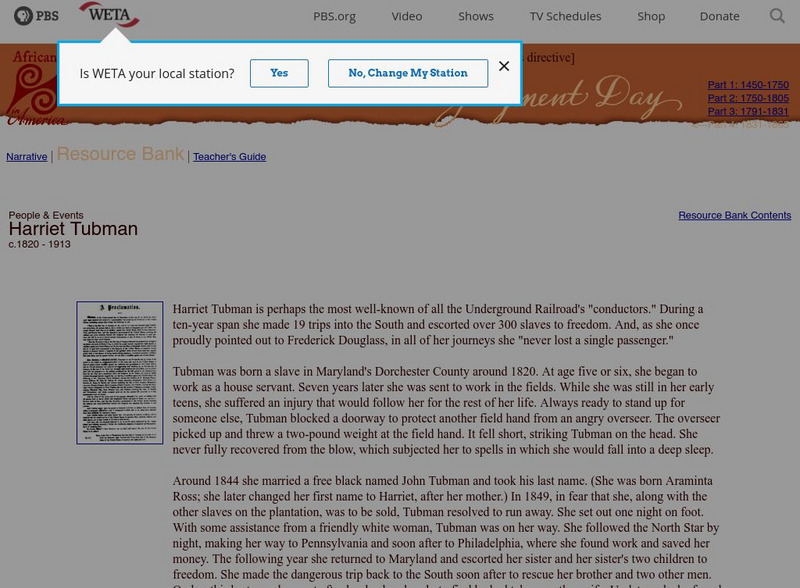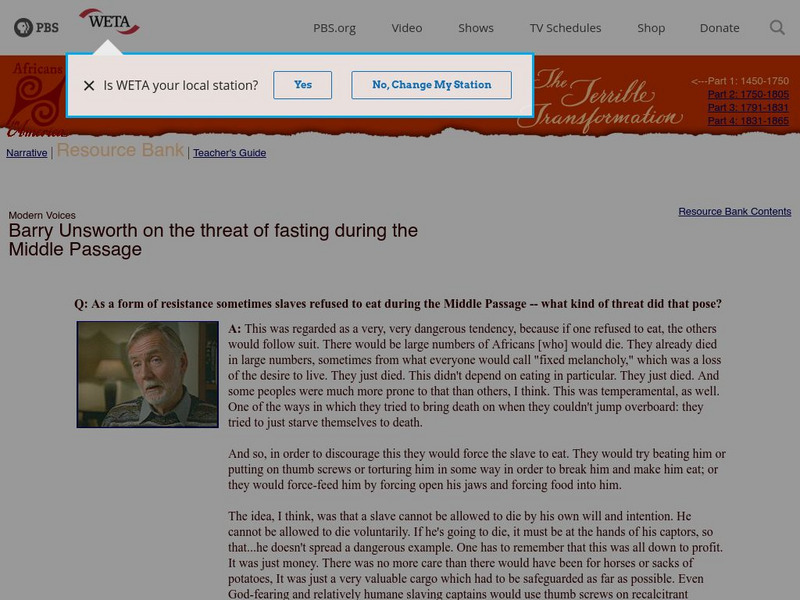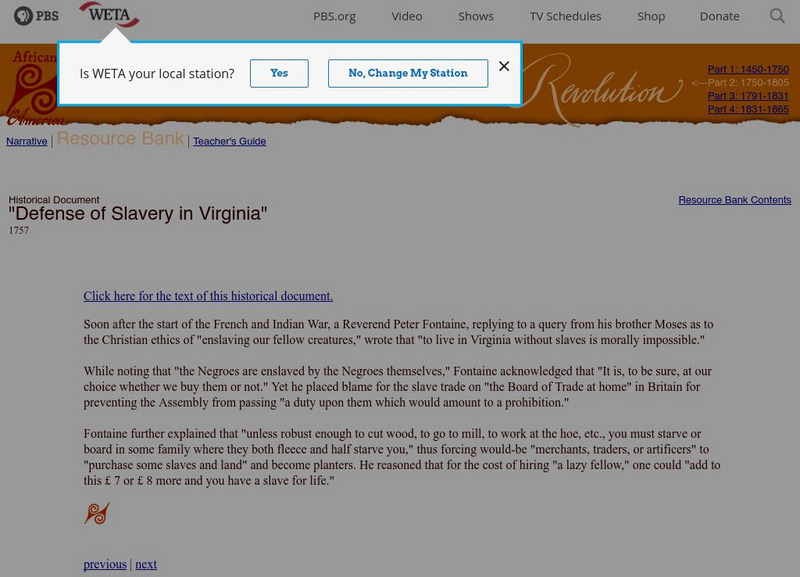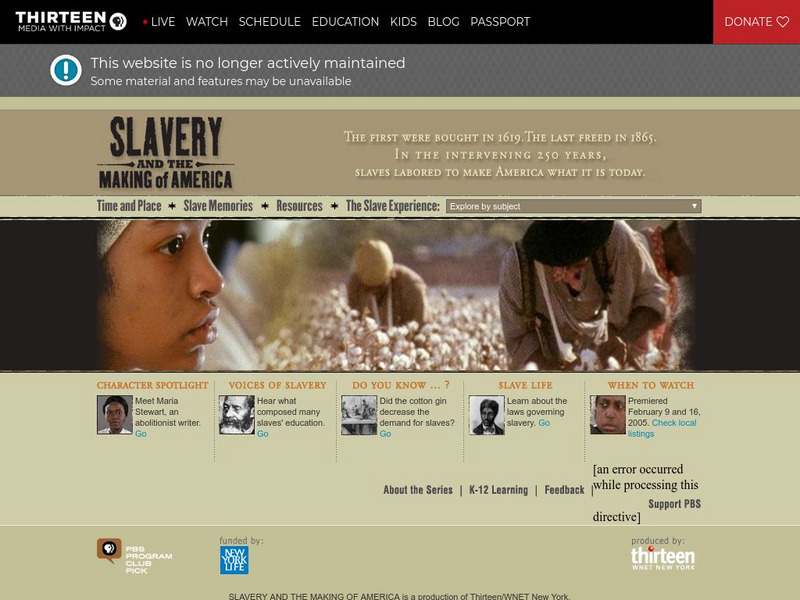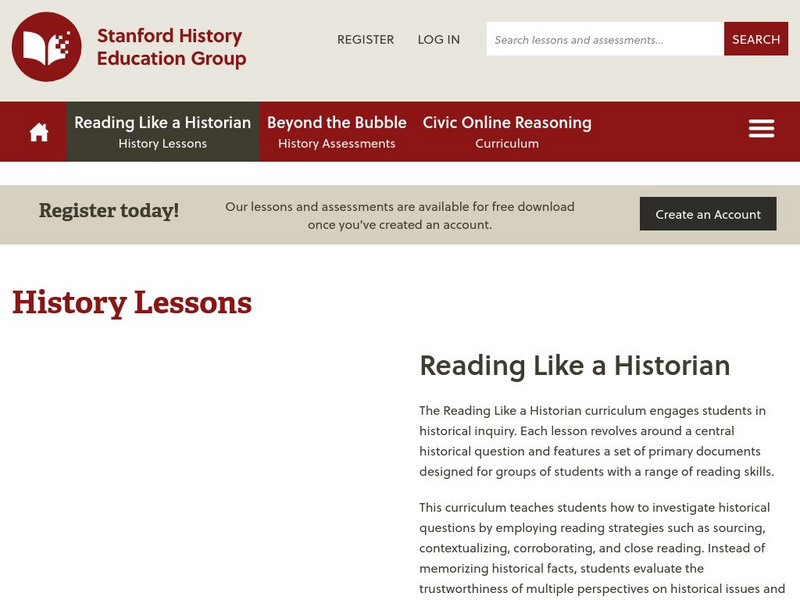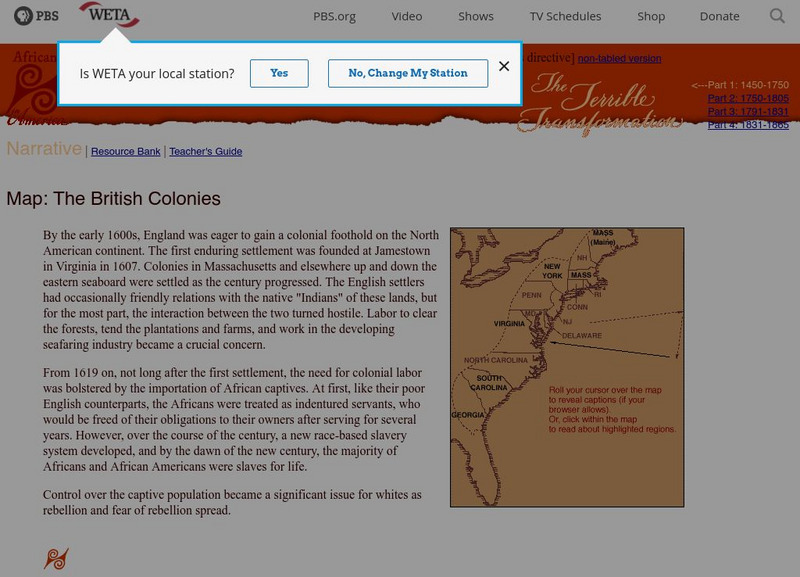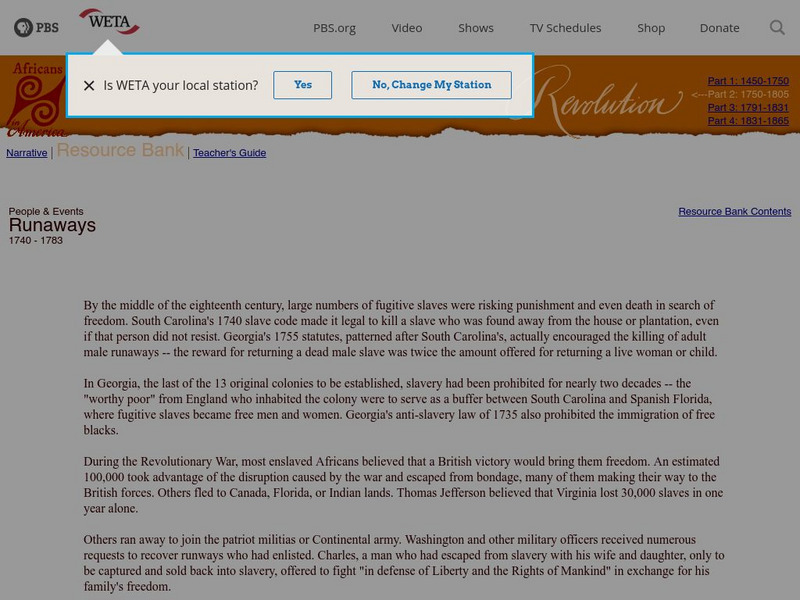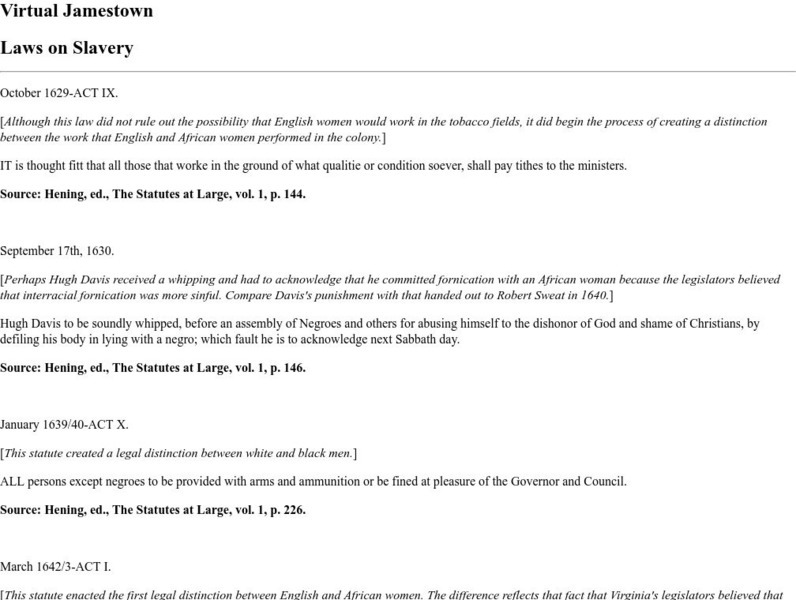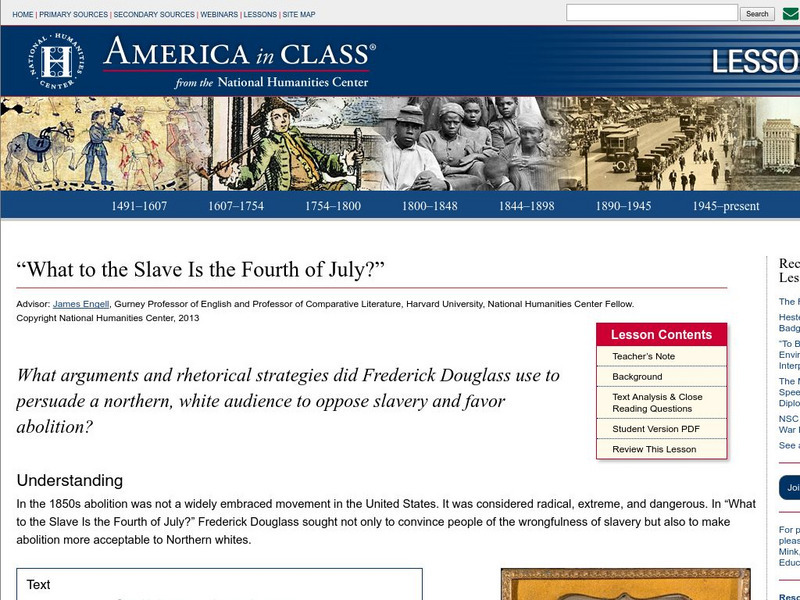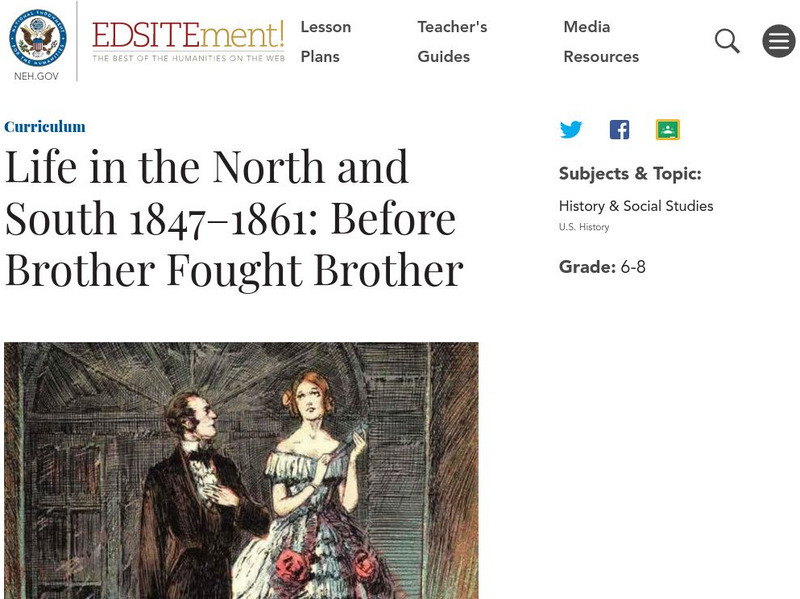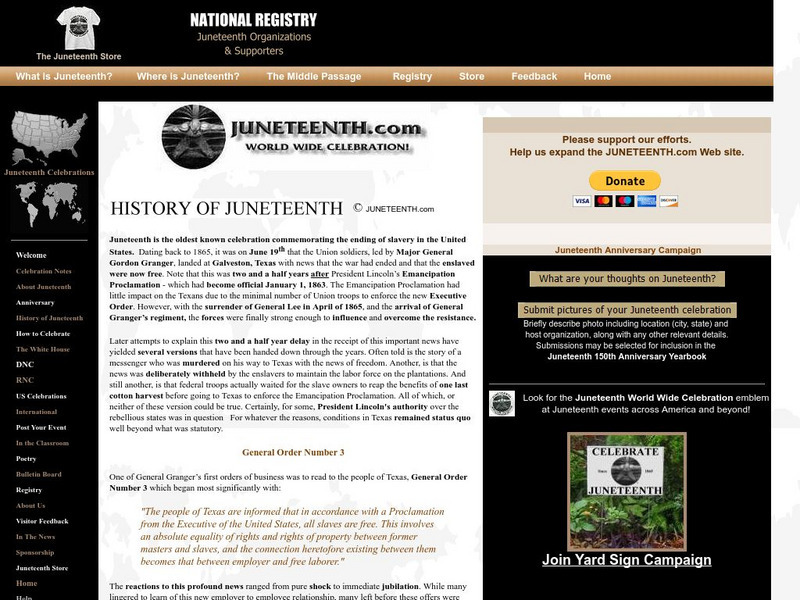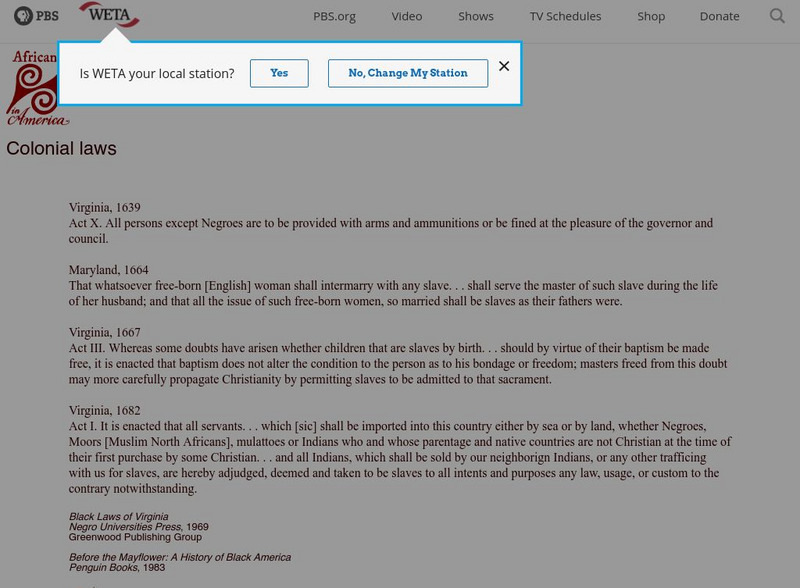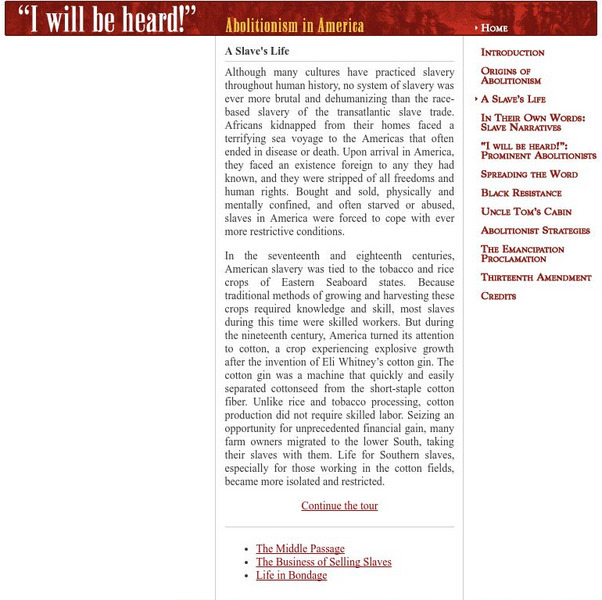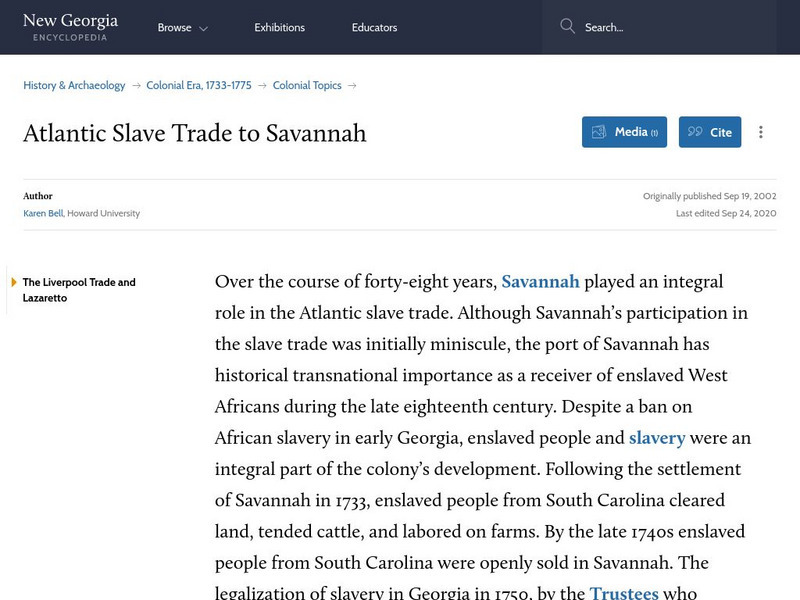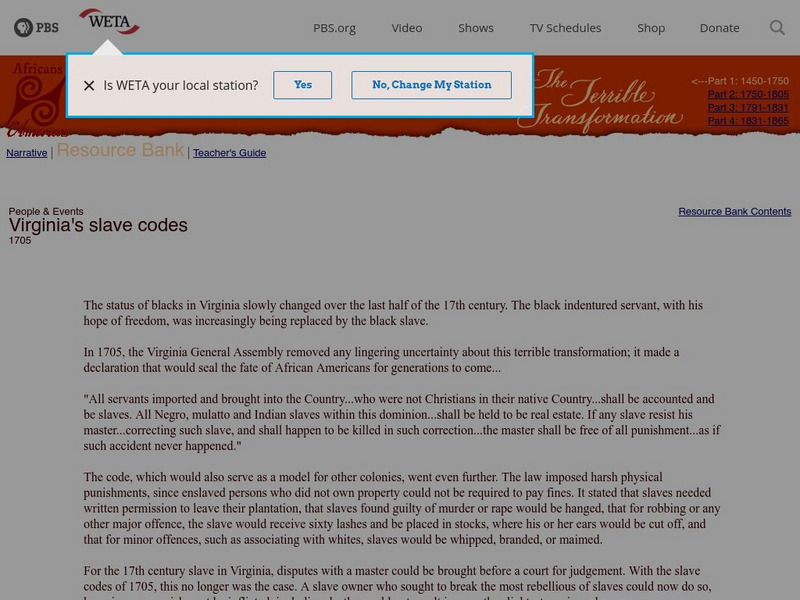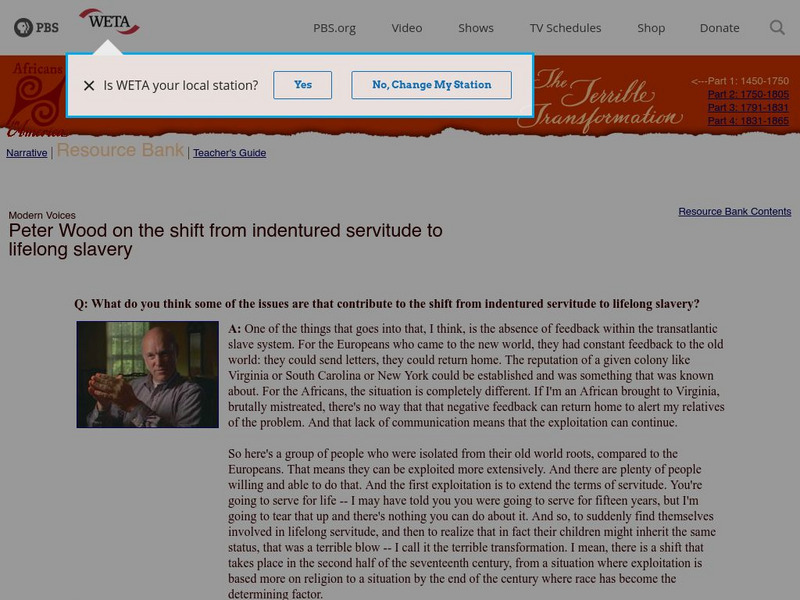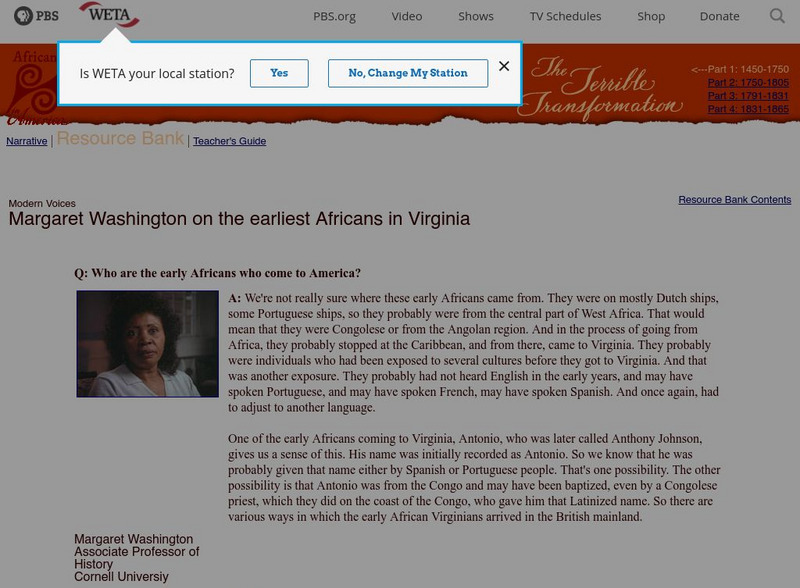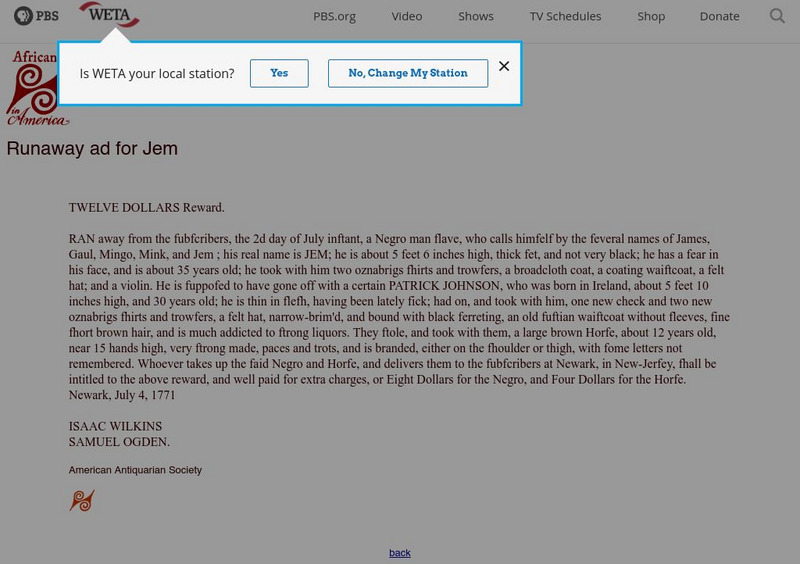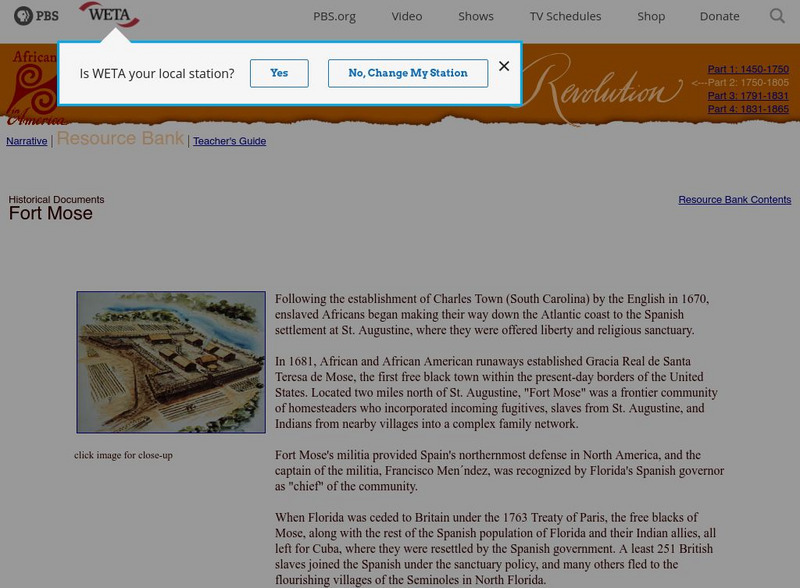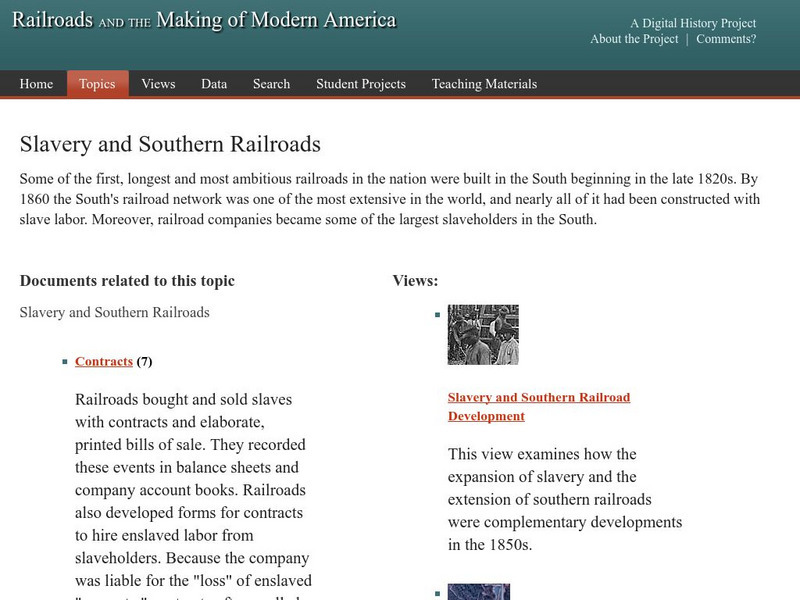PBS
Pbs: Africans in America: Harriet Tubman (1820 1913)
Here is a brief article from PBS on the life and accomplishments of abolitionist Harriet Tubman, who risked her life on several occasions to ensure the freedom of others. Links to a teacher's guide and primary sources are provided.
PBS
Pbs: Cet: Africans in America: The Threat of Fasting During the Middle Passage
Description of how slaves tried to starve themselves to death on slave ships as a form of resistance, and how the slave traders forced them to eat so they would not lose money. Click on Teacher's Guide for teaching resources.
PBS
Africans in America: "Defense of Slavery in Virginia"
From PBS's "Africans in America," Reverend Peter Fontaine's defense of slavery to his brother in 1757. Click to read the text of the actual document.
PBS
Wnet: Thirteen: Slavery & the Making of America
Using primary documents, oral histories, and other historical resources, discover how the arts of Africa, Europe, and pre-Civil War America influenced the culture of enslaved African Americans.
Mariners' Museum and Park
Mariners' Museum: Captive Passage: The Transatlantic Slave Trade
Online exhibition from the Mariners' Museum chronicles the plight of African slaves from the beginning of their journey when they are torn from their homeland all the way to the shores of the Americas. Caught up in the lucrative...
Stanford University
Sheg: Document Based History: Reading Like a Historian: Early America
[Free Registration/Login Required] The Revolution and Early America unit covers the standard eighteenth century topics that would appear in any textbook. These lessons, however, will push students to dig deeper as they read the documents...
PBS
Africans in America: Map of the British Colonies
Map of British Colonies and information from PBS on slavery from about 1600 to 1750. Some timelining of African American's lives in the New World.
PBS
Africans in America: Runaways 1740 1783
This website gives a rough idea of how many slaves were present in the South and what happened to many who ran away.
Other
Virtual Jamestown: Laws on Slavery
This site provides the original text of Virginia colonial laws concerning different aspects of slavery for Africans, Native Americans, and indentured servants.
National Humanities Center
National Humanities Center: America in Class: "What to the Slave Is the Fourth of July?"
Explores the argument made by Frederick Douglass and his appeals to convince northern whites to oppose slavery and favor abolition. Lesson content includes resources for both teachers and students.
National Endowment for the Humanities
Neh: Edsit Ement: Life in North & South 1847 1861: Before Brother Fought Brother
The five lessons in this unit are designed to help students develop a foundation on which to understand the basic disagreements between North and South through the investigation of primary source documents, photographs, and census...
University of Groningen
American History: Outlines: Settlers, Slaves and Servants
Men and women with little active interest in a new life in America were often induced to make the move to the New World by the skillful persuasion of promoters. William Penn, for example, publicized the opportunities awaiting newcomers...
Other
Juneteenth.com: History of Juneteenth
Juneteenth.com discusses what Juneteenth is, its history, and its celebration. Content includes a look at why June 19, 1865, signifies the end of slavery in America, as opposed to Lincoln's Emancipation Proclamation of January 1, 1863.
PBS
Africans in America: Colonial Laws
Read some excerpts from original colonial laws concerning slaves.
Cornell University
Cornell University: Library: I Will Be Heard: A Slave's Life
A brief look at how slavery in America was tied to the crops grown in the South. See how the need for skilled workers was decreased and the use of unskilled slaves increased with the introduction of the cotton gin.
Georgia Humanities Council and the University of Georgia Press.
New Georgia Encyclopedia: Atlantic Slave Trade to Savannah
Encyclopedia article describing slavery in Colonial Georgia and the role that Savannah played in slave trade from 1755 to as late as 1858.
PBS
Africans in America: Virginia's Slave Codes (1705)
This website describes contents of the Virginia Slave Codes of 1705 with excerpts from the orginal law.
PBS
Pbs: Cet: Africans in America: The Underground Railroad
This PBS site provides a general history of the Underground Railroad, including a focus on notable participants or "conductors." Click on Teacher's Guide for teacher resources.
PBS
Africans in America: American Colonization Society
Learn about the views of the American Colonization Society (ACS) and about their efforts to send free blacks to Liberia. This website briefly overviews how the ACS started and how their efforts lead to the emigration of thousands.
PBS
Pbs: Africans in America: Shift From Indentured Servitude to Lifelong Slavery
This discussion by Prof. Peter Wood of Duke University explores what may have allowed the shift from indentured servitude to lifelong slavery for Africans and their children. Click on Teacher's Guide for teacher resources.
PBS
Africans in America: Margaret Washington on the Earliest Africans in Va.
In a brief answer, Margaret Washington, Assoc. Professor of History at Cornell University, discusses where the first Africans to colonial Virginia were from, who they were, and what it may have been like for them.
PBS
Africans in America: Runaway Slave Ad From Colonial New Jersey
Here from PBS is the original text of a runaway slave ad for a slave named Jem. His owner in Newark, New Jersey describes him and offers a reward.
PBS
Africans in America: Fort Mose
This website from PBS describes how Fort Mose was established by runaway slaves in Spanish Florida. It also explains what happened to the inhabitants after Spain lost control of Florida.
University of Nebraska
Railroads and the Making of Modern America: Slavery and Southern Railroads
Primary source materials that focus on how the railroad companies supported the slavery system through slave labor, slave ownership, and as a transportation system for the slave market in the South. Content includes contracts, company...
